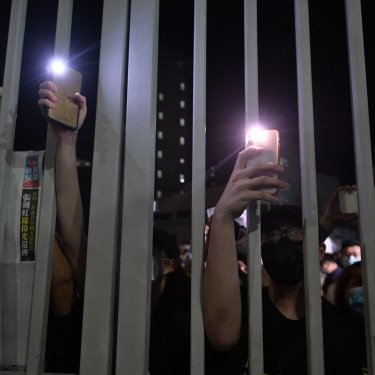RSF unveils strategy and programme for last third of 2023

Reporters Without Borders (RSF) is unveiling its priorities for the last third of 2023. As it continues to develop quickly and change its methods of working, RSF intends to be active on all fronts promoting journalistic freedom, pluralism and independence.
This year started with a bang for RSF with the “Russian journalist with the sign,” Marina Ovsyannikova, resurfacing in Paris, the revelations about journalist Martinez Zogo’s death in Cameroon, the publication of a report on the Wagner-allied “Malkevich network,” the release of Olivier Dubois, the French journalist held hostage in Mali, and the international campaign for the release of French-Afghan journalist Mortaza Behboudi. These and RSF’s many other activities all over the world were carried thanks to the joint work of a team in Paris, 13 international bureaux and sections, and correspondents and partners in 144 countries.
September and the following months will see the same dynamic, with intense activity on all fronts. RSF will pursue its actions and initiate new ones in the various areas in which it intervenes:
● Press freedom:
○ Direct talks with the Taliban authorities about the release of Mortaza Behboudi and arbitrarily detained Afghan journalists
○ Publication of a report on the challenges for journalism in the Amazon in the climate crisis era (21 September)
○ Protests outside nine Belarusian embassies about Maryna Zolatava, a journalist detained since May 2021 (6 November)
○ International publication of the annual report on abuses against journalists (mid-December)
○ RSF press freedom awards in Brussels (28 November)
● News and information market:
○ Announcement of a partnership with an international platform on media certification by the Journalism Trust Initiative (JTI)
○ Continuing to advocate for our recommendations to be incorporated into the European Media Freedom Act
○ Promoting the 30 recommendations in the White Paper on the Right to Information that resulted from the RSF bus tour
○ Launch of the “Spinoza Project” for developing a reliable AI tool for newsrooms and journalists
● Information space:
○ Unveiling the Circle 19 declaration on the right to information in China, with a first symposium (12 September)
○ Publication of the Charter on Artificial Intelligence in the Media, chaired by Nobel peace laureate and journalist Maria Ressa (in the autumn)
○ Meetings with government representatives as part of the Partnership for Information and Democracy signed by 51 countries at RSF’s initiative
○ Launch of a Russian-language media satellite package to combat Kremlin propaganda
RSF is now using a 360-degree approach to implementing its mandate, with a multiplicity of activities – investigation, reporting, communication, advocacy, strategic litigation, assistance, training, standards setting, and project launching.
To develop its programmes and campaigns, RSF dialogues with a wide range of actors that include international organisations, government leaders (including the most difficult ones), journalistic communities, media owners, advertisers and major online platforms. This holistic strategy is the specificity of an organisation that seeks global change.
RSF’s development on an international scale, with a rapid evolution in its methods of action, is based on solid budgetary management. In the course of 2021 and 2022, RSF’s budget and activities grew by more than 50%. RSF has offices in 14 cities around the world, and representatives or correspondents in 144 countries.
PRESS CONTACTS
Emilie Poirrier
Director for communication and engagement
+33 6 7792 1677
Elena García
Press relations and influence officer
+33 7 8250 0782
